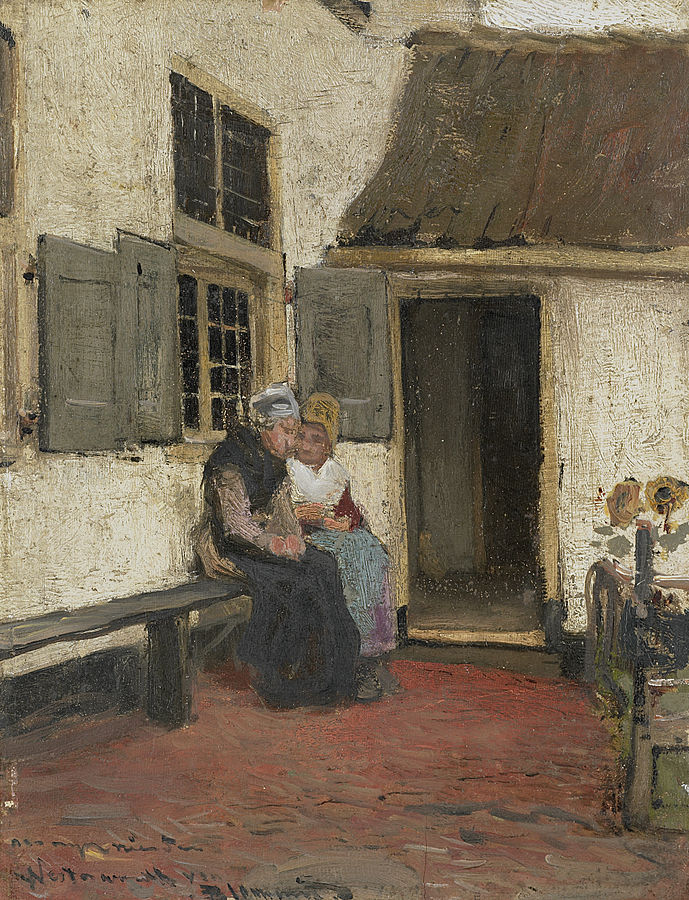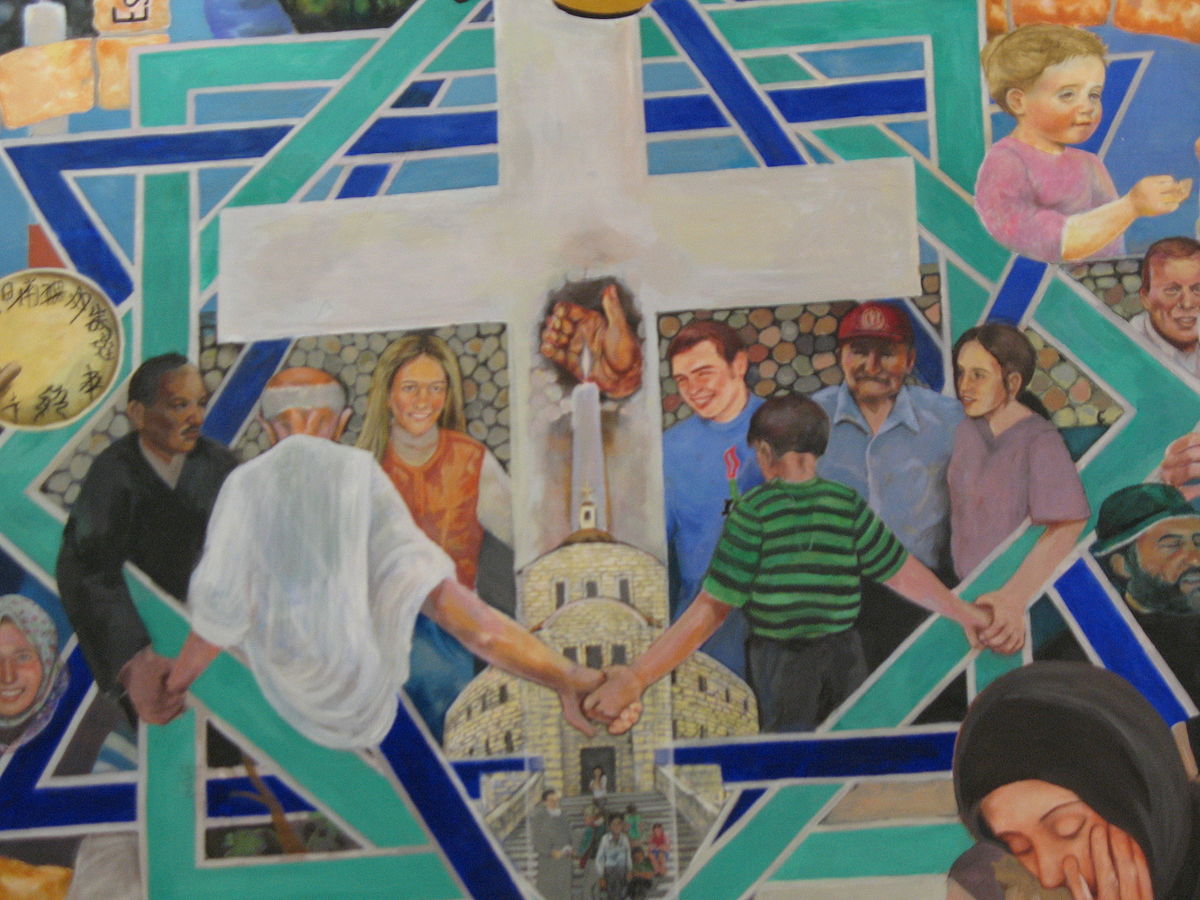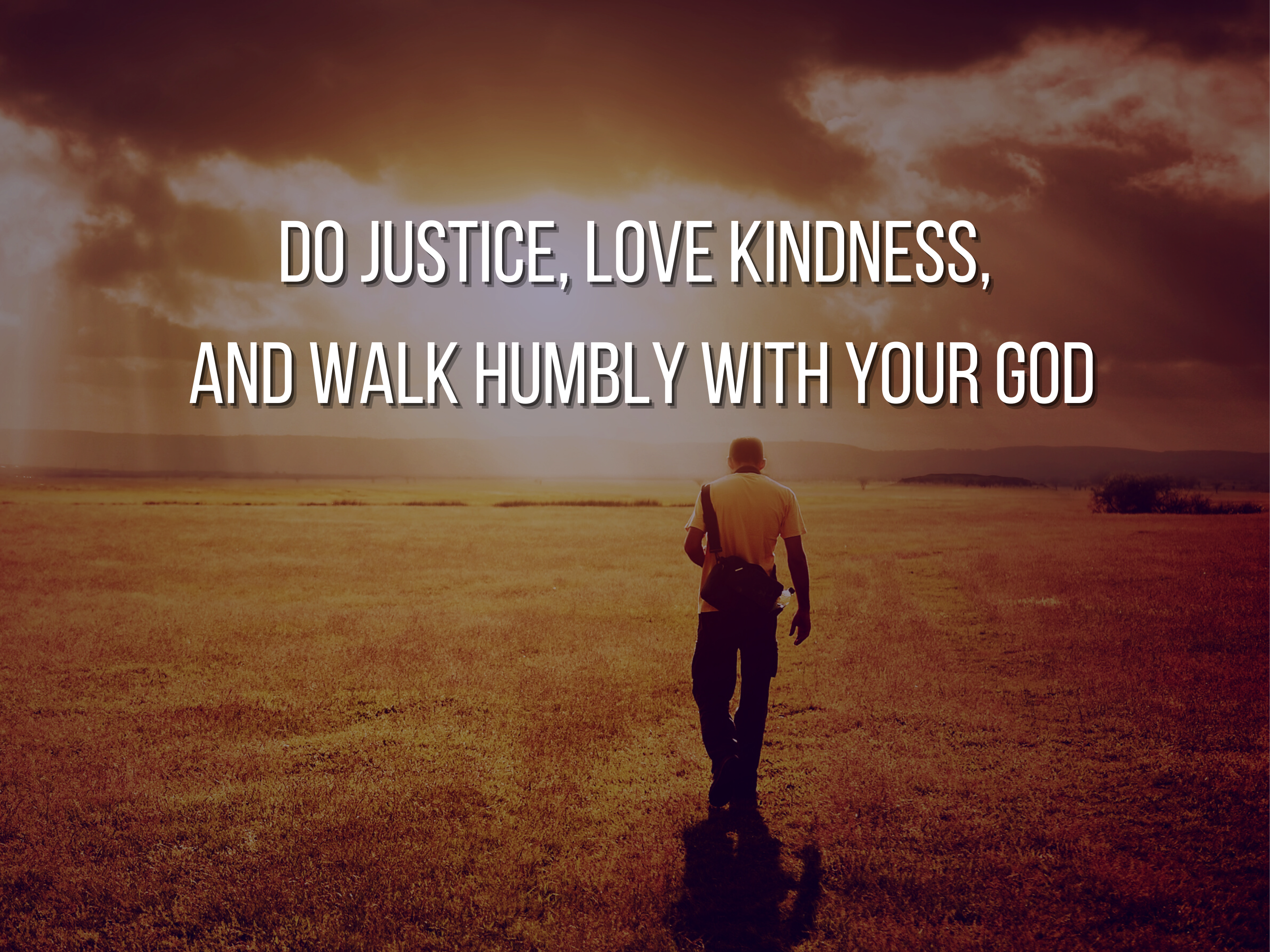Fifteenth Sunday after Pentecost, Year A
Christ, Better than Nextdoor
Matthew 18:15-20
Fifteenth Sunday after Pentecost
Analysis by Matt Metevelis
15If another member of the church sins against you, go and point out the fault when the two of you are alone. If the member listens to you, you have regained that one. 16But if you are not listened to, take one or two others along with you, so that every word may be confirmed by the evidence of two or three witnesses. 17If the member refuses to listen to them, tell it to the church; and if the offender refuses to listen even to the church, let such a one be to you as a Gentile and a tax collector. 18Truly I tell you, whatever you bind on earth will be bound in heaven, and whatever you loose on earth will be loosed in heaven. 19Again, truly I tell you, if two of you agree on earth about anything you ask, it will be done for you by my Father in heaven. 20For where two or three are gathered in my name, I am there among them.”

Chatting Neighbors – Bernard Blommers (1845–1914) From Wikimedia Commons
The connection that we have with Jesus as sinners—just doing our best in a broken world—is deeper than any connection that we seek to create. Our neighbors sometimes can only see who they want us to be. Jesus dies for us because of who we are.
DIAGNOSIS: Disconnected by Sin
Step 1: Initial Diagnosis (External Problem): Seeking Connection
A large part of my morning routine has become checking the feed on the “Nextdoor” app. Unlike other social media platforms that connect me to old friends and people who share my interests from around the world, Nextdoor connects me to people who live in close proximity. My feed is full of posts from people who live in my work and home neighborhoods, and the ads are usually for local businesses. As strange as it is to use the internet and electronic means to connect with people that I could just as well meet by a quick stroll or a block party, I’ve come to enjoy seeing what is going on near me and indulging in a bit of local gossip. Nextdoor aims to foster this sense of connectedness. It’s trying to put back together what nearly a century of rapid technological progress has torn apart. The internet has us so distracted by our screens, that we interact less and less with the world of real people around us with our lives, livelihoods, interests, and ideas. Being a real-time neighbor has ceased to be a meaningful social construct for most Americans and is now merely a geographical term (especially in upper-income areas). Just like trendy breweries designed to look like old time neighborhood establishments. Nextdoor tries to inject some digital juice and nostalgia into the scrapyard of neighborly solidarity and cohesion.
Step 2: Advanced Diagnosis (Internal Problem): From Neighbors to Accusers
Nextdoor describes its mission as “bringing neighbors and organizations together to cultivate a kinder world where everyone has a neighborhood they can rely on.” It’s a wonderful idea. Too bad I rarely experience it on Nextdoor. Someone is stolen from. The power company is scamming people with high rates. People drive like idiots. Someone is making too much noise. Did you see what all that police activity was about around 3 PM the other day? People are acting weird in that one house down the block. What might that person be up to in the funny hat? Crime is out of control because a single incident of shoplifting is witnessed . A woman posted that someone in a white van was driving too fast around my son’s school; I was able to report that I thought someone matching the description was pulled over a block away. But someone commented that the real problem is that kids today are too reckless, and you shouldn’t fault someone trying to get a kid to school and then get to work. I was about to respond, “Drive like that around my kid and I will show you what reckless looks like,” but I remembered that since I use my real name, she might be able to identify me as a pastor on Google.
Aside from the occasional found pet, or shout out to a decent restaurant, most of Nextdoor is an Olympics of self-righteousness and paranoia. I sympathize when someone is venting a little about a bad day. I smile when someone is being called out. I cringe a little when thinly veiled or casual racism shows its ugly face. But as a student of human nature, I can only revel in the petri dish that is my Nextdoor feed. People might tell you that they want a “kinder world,” but what they really want is to go about their business with as little hassle as possible, pay back all the dirty cheats and terrible motorists that wrong them, and avoid anyone who might be perceived as a threat. The mission statement of Nextdoor proclaims a hope but the feed reveals the reality. We want to rely on one another, but we disappoint one another all the time. We all want to get along, but we don’t.
Step 3: Final Diagnosis (Eternal Problem): An Unkinder World
Neighborhoods can be pools of grievance just as much as they can be pillars of reliance. In each neighborhood there are memories and cautionary tales of rights and wrongs, heroes and villains, suspicions and distrusts. No matter what external laws govern them, there are as many more laws in them as there are residents. Being a neighbor sometimes means delineating where my property begins and yours ends. But holding you accountable for your negligence may involve me denying mine. Each of us in the daily grind becomes a law unto ourselves. Deeper connections, whether they are digital or physical, always threaten to unleash such caprice. These connections can serve us, or they can be to our disadvantage. We will never always be able to do right by one another. The law we carry around in our hearts contains our lofty expectations, our fragile egos, and our aversion to shame. Without an outside force to justify us, we will continually justify ourselves. We shout (or type) the verdicts loudly for all to hear. We’re not connected, because at the core we are busy denying the accusation of the law against us and levying it squarely toward others.

Reconciliation-A Space Where Mercy and Forgiveness Meet. By James Emery From Wikimedia Commons
PROGNOSIS: Reconnected in Christ
Step 4: Initial Prognosis (Eternal Solution): Church: What We Rely On
Nextdoor promises a “kinder world” and a more connected neighborhood through its social media tools. Christ makes a more reliable promise in our text. But note that he does not do so by talking about communitarian hopes. He doesn’t say, “I will build a kingdom which is really connected, where people really love one another and can rely on one another.” Jesus is much smarter than that. He knows that we can’t be relied on.
But Jesus knows that he can be relied on. That is why he closes this teaching with a promise: “Wherever two or more are gathered there I am among them.” What connects the Christian community is not anything the people in the community do. It is the presence of Christ among them, crucified in their midst for their sins, taking every insult, mockery, derision, and “smh” (“shaking my head”) that we dish out to one another; and he wears it on the cross. After all, just as he tells the Father from the cross, we don’t know what we do. It is not as good neighbors, or loving people that we are drawn together in Christ. Instead, Christ gathers us in, sinners that we are, to be present with us even when we have to distance ourselves from one another because of our failures. Our goal as a Church is not to legitimize our existence with bigger attendance numbers or vindicate ourselves with anybody else. The connection that we have with Jesus as sinners—just doing our best in a broken world—is deeper than any connection that we seek to create. Our neighbors sometimes can only see who they want us to be. Jesus dies for us because of who we are.
Step 5: Advanced Prognosis (Internal Solution): Freed to be Face to Face
But Jesus does not promise to be with us just so forgiveness is for our personal benefit. This forgiveness from Christ and restoration with God is meant to reign concretely in our relationships and not just get filed away in our hearts. Christ is already between me and my neighbor, so I no longer need to face off against him in a chasm of hurt feelings, accusation, and superiority. The Olympic contests are cancelled. I am free to honestly and truthfully confront those who have hurt me, but only if the situation cannot be resolved in any other way. In the end, the goal is not proving how right I am; the goal is “regaining” a sibling. With my own righteousness taken off the table by Christ’s cross, I am free to speak to my neighbor—sinner to sinner—revealing my hurts, speaking about my needs.
Step 6: Final Prognosis (External Solution): Reconnected
Connection is not about us never fighting; it’s about our mistakes and misunderstandings being handled with honesty, grace, and care. These things cannot be built with intricate digital tools, or with the hope that people of common interests will connect. They are built slowly through time as people work together, endure trials together, and are able to see one another as flawed but forgiven. The first word that Christ says after “when a neighbor sins against you” is the simple command “go.” As Christ comes to us, we go then with courage into the difficult relationships that we endure. And we do so because Christ has promised to be there. The connection that every community relies on is the greatest connection of all: the connection of two sticks of wood with a God speaking forgiveness from it. From that cross Jesus empowers us to speak that forgiveness to one another.

